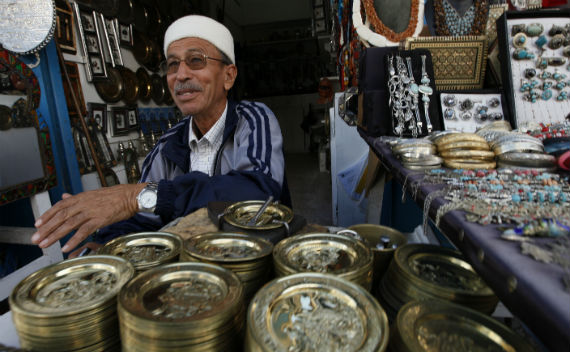Tunisia’s Democratic Test Still Awaits
More on:

Tunisia’s first truly free elections also mark the first elections of the Arab uprisings. The vote appears to have been largely free and fair. With only a few reports of fraud, the turnout was even larger than expected, with some seven out of ten eligible voters casting ballots. Though a small country, events in Tunisia will resonate disproportionately beyond its borders, with the entire Arab world watching. This is all the more so with Qaddafi’s overthrow last week and Egypt’s parliamentary vote slated to begin in a month.
With the Islamist al-Nahda party claiming victory, Tunisia will be an important test case of how Islamist parties govern. Al-Nahda’s leader Rachid Ghannouchi has stressed that his party will not try to impose morality onto Tunisia’s society. He is trying to project the party as progressive and tolerant. Al-Nahda will have to be pragmatic, at least at the onset, since it will likely win a plurality at best in the 217 seat Constituent Assembly, requiring it to govern in coalition with non-Islamist parties. Moreover, the majority of Tunisians recently polled claim to want a secular government (though some 77 percent of those polled professed not to know the difference between a secular and non-secular government). Against this backdrop, it is still too early to say if a modern and liberal form of political Islam will emerge from this.
While Tunisia is off to a hopeful start, it still has a difficult road ahead. One major challenge before the new parliament will be drafting a constitution and appointing an interim government that will then work to establish the rules and norms for the peaceful transfer of power. What kind of law will be adopted? What kind of state will Tunisia be? Will it be an Islamic state, a civil state, or a democratic state that respects religious principles? Will previously enshrined codes that enhanced women’s rights be respected, eliminated, or eroded? Most fundamentally, how will differences among competing visions of Tunisia’s future be reconciled? Ultimately, the challenge will be to create checks and balances and proper mechanisms for the adjudication of differences, not their elimination.
Meanwhile, Tunisia must tackle the structural causes underlying the Arab uprisings: economic discontent, corruption, and unemployment, especially among the young. Whoever rises to power in Tunisia will need not only to deliver good governance, but job creation and more equitable access to finance. Since the toppling of Ben Ali, Tunisia has witnessed an economic downturn and a major slump in investment. According to the Economist Intelligence Unit, Tunisia’s economy may be pulling out of its recession. The first quarter’s economic contraction has turned around. Exports are up, but tourism remains badly battered. Setting the economy straight is essential for Tunisian democratic aspirations to succeed.
These challenges will help define the success or failure of Tunisia’s democratic experiment. Ultimately, the real test will not come with the assumption of power via the ballot box. The true measure will only come in time, with the relinquishment and peaceful transfer of power by leaders in whom power was invested only temporarily. Only after Tunisia successfully holds its second election, with a resultant transfer of power, will we be able to say that democracy has triumphed.
More on:
 Online Store
Online Store